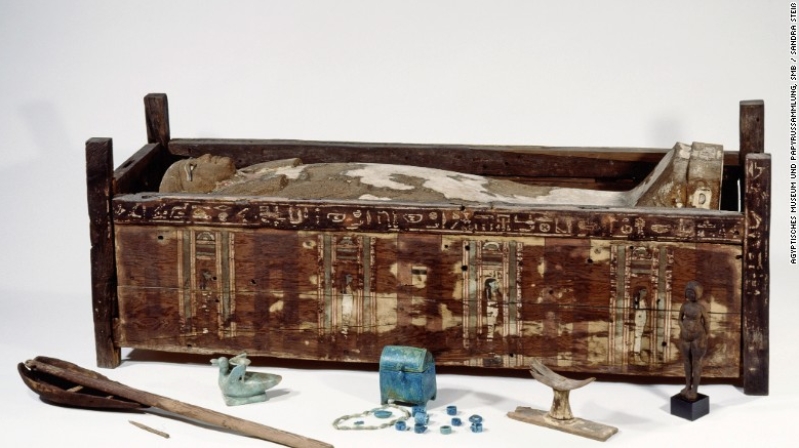
Groundbreaking research based on DNA taken from Egyptian mummies supports the Old Testament narrative that the first Egyptian Dynasty descended from the biblical Ham, one of Noah's four sons.
CNN reports that researchers from the University of Tuebingen and the Max Planck Institute for the Science of Human History in Jena found "unexpected results" when decoding the genome of ancient Egyptians discovered in Abusir-el Meleq, Middle Egypt.
Based on their findings, published in Nature Communications, researchers concluded that preserved remains were the closest genetic relatives of Neolithic and Bronze Age populations from the Near East, Anatolia and Eastern Mediterranean Europeans.
"We found the ancient Egyptian samples falling distinct from modern Egyptians, and closer towards Near Eastern and European samples," the researchers noted. "In contrast, modern Egyptians are shifted towards sub-Saharan African populations."
Breaking Israel News contends that these scientific findings parallel biblical accounts tracing the First Egyptian Dynasty back to Biblical Ham.
"According to the Bible, Mizraim settled in Egypt whereas Cush settled in Africa, establishing two distinct and separate nations that did not share a common heritage," notes BIN. "The scientific theory implies the origins of Africa and Egypt were the same."
The outlet cites Genesis 10:5-6, which states: "Of these were the isles of the nations divided in their lands, every one after his tongue, after their families, in their nations. And the sons of Ham: Cush, and Mizraim (or Egypt according to the New International Version of the Bible), and Put, and Canaan."
The research is based on 166 samples from 151 mummified individuals in Abusir el-Meleq dating back 1,300 years of Egyptian history, from about 1388 BCE to 426 CE.
Using DNA capture techniques, the researchers "successfully obtained complete human mitochondrial genomes from 90 samples and genome-wide SNP data from three male individuals passing quality control."
"This is not just the DNA of one person. It's the DNA of the parents, grandparents, grandparents' parents, grand-grand-grandparents' parents and so forth," Professor Johannes Krause of the Max Planck Institute explained.
He added that previously, DNA analysis of mummies has been treated with skepticism, as touching a bone leaves "more DNA on the bone than inside it."
"Contamination is a big issue," Krause said. "Only in the last five or six years has it become possible to actually study DNA from ancient humans, because we can now show whether DNA is ancient or not by [its] chemical properties."
He said that he expects there "will be a ton of ancient Egyptian mummy genomes [mapped] in the next couple of years," as "multiple groups" are following his team's lead.
"There's always more research we can do," he said. "This is not the end. It's just the beginning."







